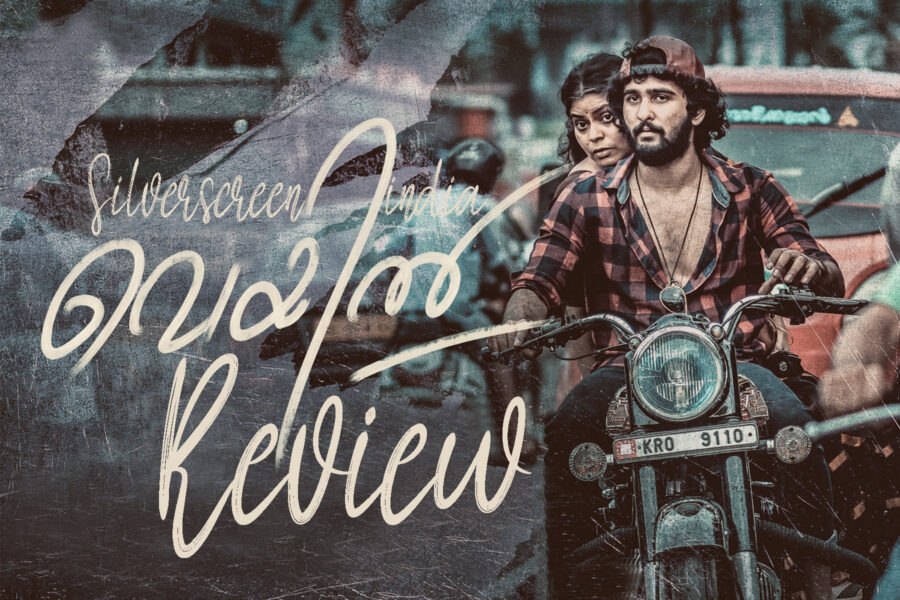In Veyil, directed by debutant Sarath, material poverty becomes the root of a larger, irreversible tragedy. Radha (Sreerekha), a single mother, and her sons, the quiet and well-mannered Karthik (Saed Imran) and the impulsive Siddharth (Shane Nigam), live in a shabby old house. The rooms are unkempt, and the walls tattered. The mother shouts at the children a lot, regularly reminding them of the family’s dire financial state and low social status, condemning their youthful tendencies to revel and rebel. The elder one buries his head in a book while the younger slams the door shut.
Veyil, despite its stark flaws, deserves a pat on its back for this central idea. An individual’s downward spiral, from a wide-eyed boy who just wants to make the best of his days, to a completely helpless adult, triggered by the unbearable burden his single mother from a low-economic class had to bear. A far-reaching social problem nobody wants to pay attention to.
The flaws, indeed, aren’t ignorable. Veyil has a wobbly narrative that swings between faint promises and exhausting hogwash. The camera, shaky like a restless toddler, frequently wanders away from the central characters to capture something “slice-of-life” – the heartwarming naturalism, a standard new-generation cinema technique that has now become overly familiar. Forget the element of familiarity, in Veyil, these cutaways only stretch out a scene, diluting its emotional punches. Every scene is chopped into multiple shots, perhaps to keep the momentum going. But the narrative, for a large part of the film, stays monotonous. The camera painstakingly documents the location, but the film, strangely, does not try to connect the characters to the place. Veyil could have been set anywhere and had it been a neighbourhood in Kochi, Shane Nigam’s defiant Kochi tongue would have found a sense of belonging.
Siddharth’s story unfolds over an extended flashback sequence, bookended by scenes from his brief visit to his hometown, Irinjalakuda. He is coming from a far-away city where he has been leading a decent life. Sarath uses archaic devices to spread out Siddharth’s life, which makes one wonder about the whole point of this narrative design. Why must a character, now in a good place in life, go down this thoroughly bland memory lane?! There is a friend, darker in complexion and incredibly supportive of every misstep Siddharth makes, and a girlfriend, sassy yet with great control over her own life, who would, later, quite easily, herald his transformation into a sensitive adult. The sub-characters are hackneyed too: an insensitive policeman, a local gangster with political ambitions who exploits the young men around him to amass wealth or get away from the hands of the law. Barring Syed’s Karthi, whose quiet and thoughtful presence in the background, watching over his brother, sometimes, becomes a poignant sight, there isn’t a single remarkable character, moment or arc that takes the viewer by surprise.
Casting actors like James Elia and Shine Tom Chacko, who have their own vault of tricks to flesh out feebly-written characters, helps the film to an extent. But what hurts the film the most is its lead actor, Shane Nigam. This is a fascinating case for anyone studying show business. Nigam has been playing the unhappy, emotionally-damaged millennial in film after film – Kumbalangi Nights, Parava, Valiya Perunnal, Bhoothakalam – creating a stereotypical image that, sometimes, spills into the yellow columns about him. In Veyil, every movement and pause of Nigam comes across as stilted and if one may, lazy. Neither Sarath nor Nigam makes an effort to turn Siddharth into a man of flesh and blood and not an idea of a person. Perhaps Nigam’s refusal to get into the skin of his character comes from a place of boredom – he has seen the insides of a dull mind several times before.
Recommended
Veyil, which had run into controversies several times during its making, might not be a project Sarath or Nigam would fondly remember. It is not difficult to see why the film does not work. There is hip music and a visual texture that looks contemporary, but the film’s breeziness comes across as forced, unlike in movies like Parava or Kumbalangi Nights. And its portrayal of the damaged man, despite the tragedies and backstories, is devoid of a soul or a root.
*****
This Veyil review is a Silverscreen original article. It was not paid for or commissioned by anyone associated with the movie. Silverscreen.in and its writers do not have any commercial relationship with movies that are reviewed on the site.


